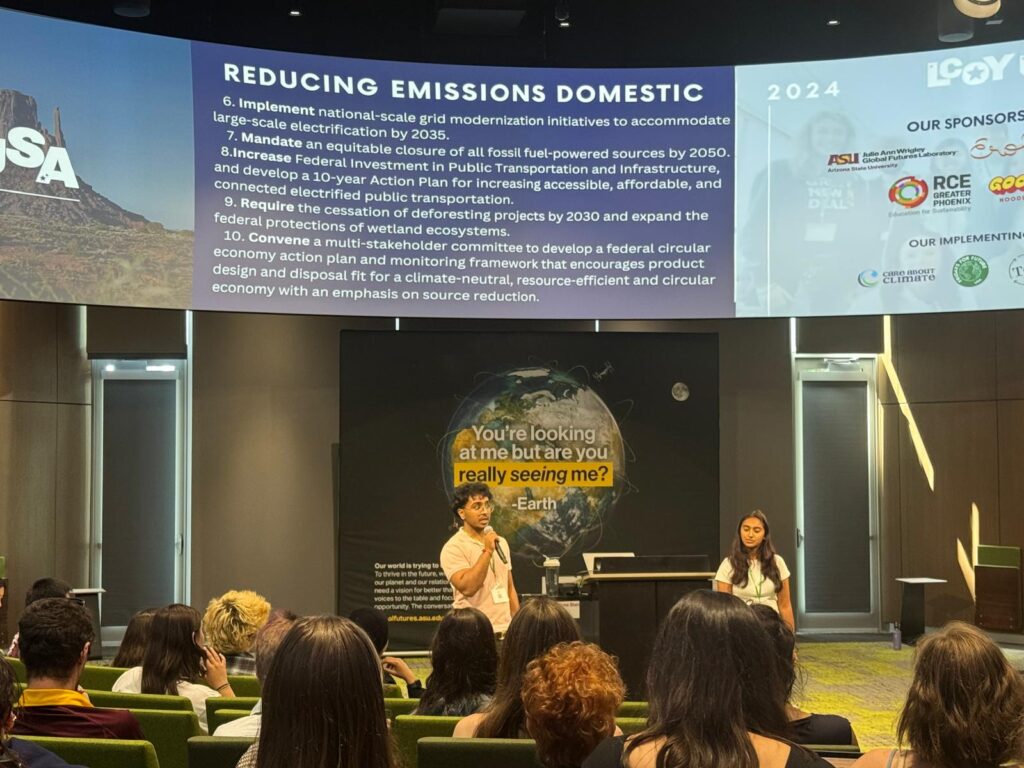Reflecting on the Local Conference of Youth (LCOY)
by Parsva Shah
I had the absolute privilege of attending and participating in the Local Conference of Youth (LCOY), an environmental conference where young environmental advocates from around the country attend to put together policy guidelines that represent the interests of youth in America, youth being defined as everyone under the age of 35. I attended with three other John Jay students under the guidance of Professor LaDawn Haglund. This United Nations-endorsed conference was held in at Arizona State University in Phoenix, Arizona from September 13 to 16. I had the opportunity to present research I had conducted on anti-migrant rhetoric in Queens, which I showcased in the context of a discussion of climate refugees in the decades to come.
I went to LCOY and left a different person. My experience fundamentally changed the way I think about environmentalism and especially about the environmental movement. I expected that environmentalists, when coming together, could assemble a policy paper with ease. This consensus I imagined did not prepare me for my experience at LCOY, where every line of policy was met with fierce debate. I realized that within environmental circles, there is a large diversity of thought.
One such contentious issue was the topic of carbon taxes. Hearing the arguments about vulnerable communities and the burden of taxes on low-income communities allowed me to see how many environmental causes may be out of touch with most American voters. Within the environmental movement, there are two factions, one which is progressive and one which is more politically moderate. However, there is no path to victory with status as a fringe ideology.
I realized that our victory as environmentalists will have to be achieved through a broad consensus. Even if carbon taxes are a great way to reduce emissions that is equitable, regular people will never vote for them, and pushing policies that are perceived as extreme only alienates us from the regular person. Through connecting with issues that the average voter truly cares about, like anti-war and health concerns, we’d be better equipped to enter mainstream politics rather than being seen as marginal. In addition, we’d have a higher chance of connecting with voters and political figures on both sides of the political aisle. Only with the votes and support of mainstream political voters will we be able to make large-scale change.
Parsva Shah is a senior at John Jay College of Criminal Justice, finishing up a double major in Law & Society and Philosophy. He is passionate about issues regarding human rights, environmentalism, and philosophy.
